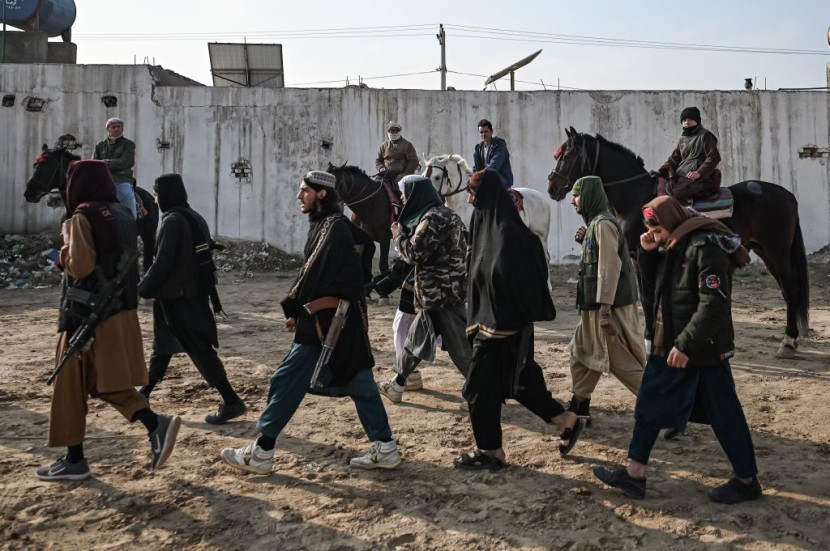
As the US-backed government in Kabul crumbled last August, Afghanistan's current Taliban government has urged Uzbekistan and Tajikistan to recover air force jets and helicopters which have been flown to the neighboring countries by fleeing pilots.
Taliban Defense Minister Mohammad Yaqoob, speaking at an Afghan air force event in the capital on Tuesday, said his administration would never allow the planes to be stolen or utilized by foreign nations.
Taliban regime has 50 operational military aircraft
According to VOA News, just days before the Taliban took over the nation on August 15, US-trained Afghan air force pilots flew themselves and their families to safety in Uzbekistan aboard more than 40 aircraft, including A-29 light attack planes and Black Hawk helicopters.
In early September, Uzbek officials said that hundreds of Afghan pilots and their families had been deported for illegally flying into the country aboard military aircraft. According to reports, the Afghan citizens were relocated to a US military facility in the United Arab Emirates as part of a deal struck between Washington and Uzbekistan to relocate more than 450 Afghans.
The fate of the plane, on the other hand, is still unclear. Afghanistan possessed approximately 164 operating aircraft until the government fell in August, with the majority of them being flown out of the country. According to Afghan media sources, just 81 people were left behind.
The Taliban's air force commander, Amanuddin Mansour, declared at the same event that the government currently has 50 operational combat aircraft and is working to repair the others. When the previous Afghan government fell, US-trained Afghan pilots flew hundreds of Afghan Air Force (AAF) aircraft to Tajikistan and Uzbekistan.
Inamullah Samangani, a Taliban spokesperson, recently informed local television Tolonews that the Taliban were in discussions with the governments of these nations to return the helicopters. The Afghan Air Force was trained and equipped at a cost of billions of dollars by the United States.
According to a study by the US Special Inspector General for Afghanistan Reconstruction, the Afghan Air Force had 131 operable aircraft out of 162 in its overall inventory before the country's collapse. In October, the US watchdog stated that approximately a quarter of the planes were flown to Uzbekistan and Tajikistan. Prior to the final US departure, another 80 planes were rendered useless at Kabul International Airport, as per DPA via MSN.
Taliban increases the wheat payment
As the financial situation worsens, the Taliban government announced on Tuesday that it is extending its 'food for work' program, in which it pays thousands of public sector employees with donated wheat rather than cash. Agriculture officials told a press conference that wheat provided by India to the former US-backed Kabul administration is being used to pay 40,000 workers 10 kg of wheat per day for working five hours a day.
According to them, the initiative, which mostly employs paid laborers on public works projects in Kabul, would be spread across the nation. According to Fazel Bari Fazli, deputy minister of administration and finance at the Ministry of Agriculture, the Taliban government has already received 18 tonnes of wheat from Pakistan with a promise of 37 tonnes more, and is in talks with India for 55 tonnes.
The increasing initiative highlights the mounting dilemma that the Taliban administration is facing as currency in the nation runs out, and it may raise issues among donors about the use of humanitarian aid for government objectives when financial flows into the country are still restricted.
Foreign sanctions against Taliban members, restricted central bank assets, and a drastic drop in previously supportive international contributions have left the Taliban rule with minimal government funds and a worsening economic crisis. As foreign countries try to save millions from starving, humanitarian aid has persisted, but it is meant to avoid Afghan government procedures and is largely provided by international multilateral agencies, Reuters via MSN reported.
@YouTube
© 2025 HNGN, All rights reserved. Do not reproduce without permission.








